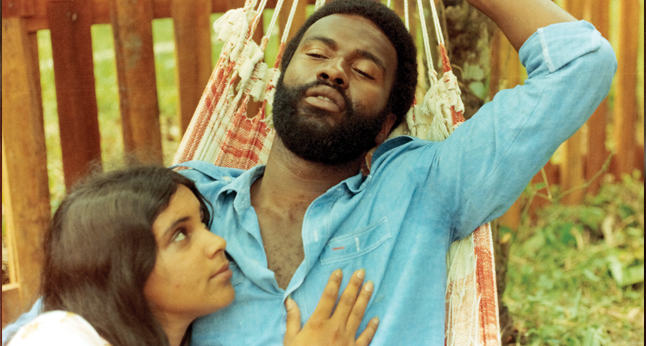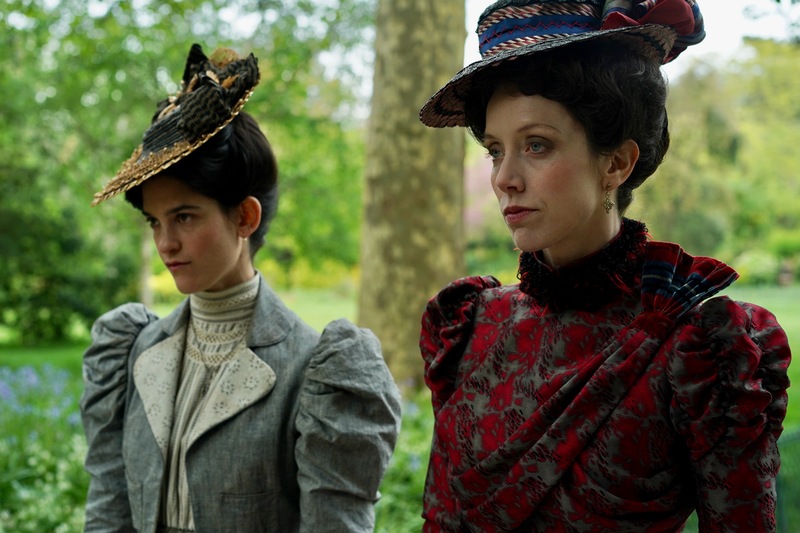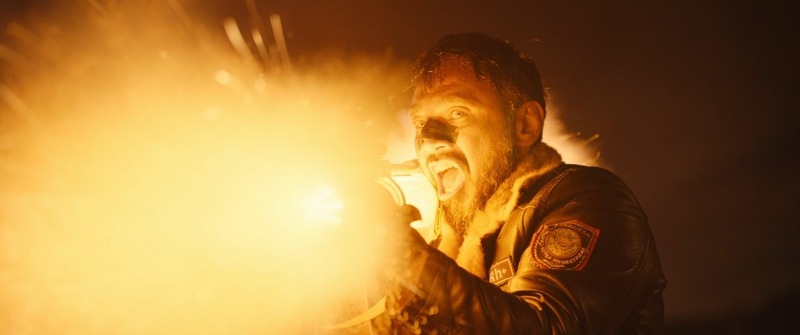
Tradition, Conflict, and the Weight of History
MOVIE REVIEW
Wan Pipel
–
Genre: Drama
Year Released: 1976, Cult Epics Blu-ray 2025
Runtime: 2h 32m
Director(s): Pim de la Parra
Writer(s): Rudi F. Kross, Pim de la Parra
Cast: Borger Breeveld, Diana Gangaram Panday, Willeke van Ammelrooy, Emanuel van Gonter, Ro Jackson-Breeveld, Sieuwpal Soekhlall, Dick Scheffer, Otto Sterman, Diana Dobbelman
Where to Watch: available May 27, 2025, pre-order your copy here: www.cultepics.com, www.mvdshop.com, or www.amazon.com
RAVING REVIEW: This one is compelling not because it desires to tie things up neatly but insists on sitting with uncertainty. Its honesty is beautiful, even when the storytelling doesn’t always land. It works best when it reflects on cultural fractures and personal transformation, creating something that resonates long after the final scene.
Set during the aftermath of Suriname's independence, the film follows Roy, a man returning from Europe to his childhood home after years away. What begins as a visit under solemn circumstances becomes a catalyst for self-reckoning. His life in Amsterdam offered clarity, or at least the illusion of it. But back in Paramaribo, the ground beneath him shifts, revealing the weight of a place he never fully let go of. He’s no longer just someone’s son or someone’s boyfriend—he’s a man standing at the intersection of two identities, unsure which direction to face.
This inner conflict quickly spills into his relationships. On one side is his partner, emblematic of the life he’s built abroad. On the other is Rubia, a nurse from a conservative Hindu background, who represents something much deeper—an unexpected connection to the world he thought he’d outgrown. What starts as a romance becomes a reflection of the divisions that shape the nation around them. The judgment they face isn’t just about love, loyalty, race, and where one truly belongs.
Rather than dressing these tensions in melodrama, the film approaches them with quiet intensity. It doesn’t ask you to pick a side. It lets the discomfort simmer, refusing to oversimplify the roles of tradition and generational expectation. The protagonist’s father, for instance, champions a version of the future rooted in the past. His decisions are steeped in cultural aspiration and anxiety, revealing just how deeply rooted those expectations can be. The film’s choice to present these tensions without commentary speaks volumes.
Visually, there’s a restrained confidence. Filmed on location, the camera doesn’t romanticize the setting. Instead, it captures the layers of Paramaribo: the heat, the stillness, the fragmented conversations taking place in crowded and silent rooms. The cinematography creates mood through subtlety.
There are areas where the film could have tightened its grip. Secondary characters sometimes feel more like placeholders than full participants. They react, deliver a moment, then disappear without much resolution. While the central arc benefits from focus, the surrounding figures could have provided richer texture. But the real draw here is how comfortably the film lives in ambiguity. It’s not chasing a thrilling conclusion or a final moment. It understands that identity is an ongoing process complicated by history, community, and internal contradictions. The movie resists resolution because the story doesn’t need one. That decision, while risky, is exactly what gives the narrative its strength.
Something must be said about how the film handles political context. It never turns into a lecture on independence or societal change. Instead, it weaves those ideas into every conversation, glance, and strained silence. The political is never separated from the personal—it’s embedded in the very fabric of the relationships. That subtle integration is more impactful than any monologue could be.
Even today, the core themes remain relevant. Diaspora, cultural duality, and the weight of expectation haven’t faded with time. If anything, they’ve grown sharper. The movie may have been made during a specific time, but its emotional truth is timeless. It captures a kind of longing that’s hard to define—the kind that follows you across oceans and generations.
While not everything works seamlessly, and certain choices feel underexplored, the film sticks with you. Its value lies in its refusal to simplify. It respects its audience enough to trust they’ll sit with the messiness and find meaning in the questions, not just the answers.
Bonus Materials:
New Restored 2K Transfer
Audio Commentary by film historian Lex Veerkamp and Bodil de la Parra
Introduction by Pim de la Parra (2020)
The Making of Wan Pipel (1976)
Interview with Willeke van Ammelrooy (2025) by Guido Franken
Bonus short film Aah… Tamara (1965)
Photo Gallery
Scorpio Films Trailers
New artwork design by Juan Esteban R.
Double-sided sleeve with original poster art
Slipcase
Please visit https://linktr.ee/overlyhonestr for more reviews.
You can follow me on Letterboxd, Instagram, Twitter, and YouTube. My social media accounts can also be found on most platforms by searching for 'Overly Honest Reviews'.
I’m always happy to hear from my readers; please don't hesitate to say hello or send me any questions about movies.
[photo courtesy of CULT EPICS, MVD ENTERTAINMENT]
DISCLAIMER:
At Overly Honest Movie Reviews, we value honesty and transparency. Occasionally, we receive complimentary items for review, including DVDs, Blu-rays, CDs, Vinyl Records, Books, and more. We assure you that these arrangements do not influence our reviews, as we are committed to providing unbiased and sincere evaluations. We aim to help you make informed entertainment choices regardless of our relationship with distributors or producers.
Amazon Affiliate Links:
Additionally, this site contains Amazon affiliate links. If you purchase through these links, we may receive a commission. This affiliate arrangement does not affect our commitment to honest reviews and helps support our site. We appreciate your trust and support in navigating these links.



Average Rating